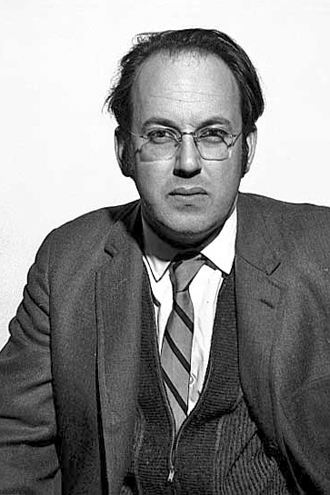Allen Grossman PhD’60, poet and professor, dies at 82
 Photo/Robert D. Farber University Archives & Special Collections
Photo/Robert D. Farber University Archives & Special CollectionsAllen Grossman
Allen Grossman, PhD’60, one of the most powerful and original voices of 20th-century American poetry, a charismatic and influential teacher at Brandeis for more than three decades, a mentor to poets and scholars, and the author of many deep and searching reflections on poetics and the philosophy of poetry, died in Chelsea, Mass. on June 27.
He was born in 1932 in Minneapolis, Minn., and earned his bachelor’s degree and master’s degree from Harvard University. He was the second Paul E. Prosswimmer Professor of Poetry and General Education at Brandeis, and one of the moving spirits behind University Studies, the noted core curriculum program at Brandeis in the 1980s. His honors and awards include a MacArthur Foundation Genius Award, the Witter Bynner Prize for Poetry from the American Academy and Institute of Arts and Letters, and the Bassine Citation of the Academy of American Poets. In 2009, he won the Bollingen Prize for poetry.
Few poets have matched Grossman's depth and intellectual ambitions. For Grossman, poetry was a way of apprehending the meaning of being at its most fundamental level, and instrument for measuring the wholeness and integrity of the cosmos, and the brokenness and longing of all things human. Poetry is a register of the moral order of experience and of the metaphysical order of nature; most of all, it is a place where the "I" of the poetic speaker and the "You" of the poetic hearer together face the eternal things in whose light their engagement with each other matters, winning for each a kind of knowledge, and a kind of relationship, at the furthest edge of the ability of language to articulate and of minds to know.
To hear Grossman read in person was to hear poetry in a way unlike any other, a way which disclosed poetry as a kind of moral and transcendental power. To read his treatise on poetice, the Summa Lyrica, is to learn to see poetry in all its radiance.
"Poetry," Grossman said, "is a principle of power invoked by all of us against our vanishing. The making of poems is a practice – a work human beings can do – in which civilization has invested some part of its love of itself and the world. The poem is a trace of the will of all persons to be known and to make known and, therefore, to be at all. Insofar as love wills the existence of what it loves, the principle of poetry is a collective and perpetually renewed act of love that brings the world to mind, and mind to mind, as the speech of a person – at the moment of the vanishing of world and persons, which is every moment of conscious life. Poetry is one means by which human beings engage, as they can, in the maintenance of a human world in which they can meet one another, affirm one another, remember, see, and foresee one another."
Grossman is survived by his wife, the novelist Judith Grossman, PhD’68, their daughter, the sculptor Bathsheba Grossman, and their twin sons, Time critic and novelist Lev Grossman, and Austin Grossman, video game designer and author of the recent novel "Soon I Will Be Invincible." He also has two children from his first marriage, Adam and Jonathan.
Grossman's books include:
Poetry
A Harlot’s Hire (1961)
The Recluse (1963)
And the Dew Lay All Night upon My Branch (1973)
The Woman on the Bridge over the Chicago River (1979)
Of the Great House: A Book of Poems (1982)
The Bright Nails Scattered on the Ground (1986)
The Ether Dome and Other Poems: New & Selected, (1991)
The Philosopher’s Window and Other Poems (1995)
How to Do Things with Tears (2001)
Sweet Youth: Poems by a Young Man and an Old Man, Old and New (2002)
Prose
Poetic Knowledge in Early Yeats (1970)
Against Our Vanishing: Winter Conversations With Allen Grossman, with Mark Halliday (1981)
The Sighted Singer: Two Works on Poetry for Readers and Writers, with Mark Halliday (1991)
The Long Schoolroom: Lessons in the Bitter Logic of the Poetic Principle (1997)
Categories: Alumni, Humanities and Social Sciences





